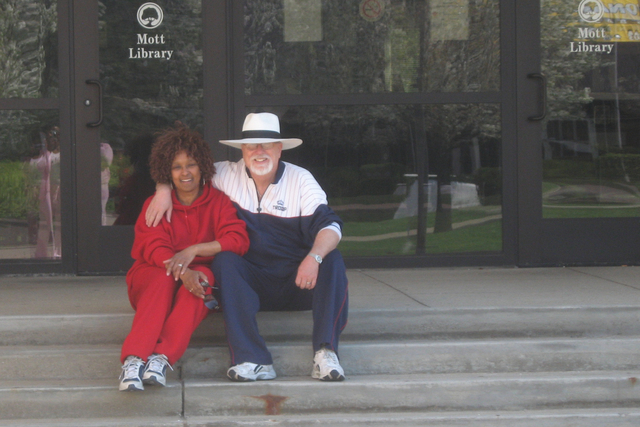Trust must be built to end the racial divide

In 1966, while we were teenagers in college, I proposed marriage to Patricia Harden.
Forty-one years later we were married.
As Americans are urged once again to talk about how whites and blacks might better interact — this time the call for a conversation on race comes in the wake of two black men killed by white police and five police officers killed by a black sniper in Dallas — I think of why my initial marriage proposal to a black woman who loved me was turned down. And yes, we talk about race, a topic that often produced friction between us while we were in college.
That we’re an interracial couple doesn’t make us social scientists whose studies point to a solution to racial conflict.
What we add to a dialogue on race are experiences that finally brought us together.
Initally, Patricia, who I met in the college library, wouldn’t date me.
What she knew of white men: In Florence, Alabama, where she was born, they wouldn’t let her ride in the front of the bus, and in Flint white men drove into her black neighborhood and offered 12-year-old black girls money for sex.
She also knew racist school counselors steered smart black kids into business courses rather than college prep courses.
“I don’t trust white guys,” she said.
Self-absorbed and having never seen or experienced discrimination, I didn’t want to hear her “excuses” for not dating me. I told the young lady who started a college human relations council that she was a hypocrite for not dating a white guy.
She should just “get over” how white men treated her in the past.
Though she saw me as “hopelessly naive,” she agreed to date me.
Our relationship grew stronger as I talked about how we would both work to ensure racism disappeared in America. She loved me for being a “hopeless idealist.”
As she refused my marriage proposal, she told me about her uncle and aunt. Angry, I didn’t want to hear her “excuses.”
Soon, I volunteered for the Army and was on my way to Vietnam.
Decades passed. I worked as a journalist. She worked as a special education teacher.
I wrote many pieces on discrimination, about blacks being denied medication in Georgia and blacks being put on death row in Texas on trumped up charges.
I also wrote about how white men came to the aid of blacks denied life-saving drugs and how they successfully fought to get blacks off death row.
One day at the Review-Journal, I received a phone call from a woman who bet I didn’t know who she was. Right away I knew the voice was Patricia’s.
She told me she’d been teaching in Las Vegas for a couple of years and learned I also was in town when she saw me on the now-dormant Vegas PBS public affairs TV show “Nevada Week in Review.”
After 41 years, we met again in a drugstore parking lot. I told her about stories I had written, how I understood why it was difficult for her to trust white men. I told her if I’d been in her shoes, I wouldn’t have accepted a date with a white guy.
She told me she was happy she’d met some white teachers who cared about black kids as much as she did.
After we married — she said she no longer feared marriage would get us killed — Patricia whispered something to me.
“It feels good to trust.”
Paul Harasim’s column runs Sunday, Tuesday and Friday in the Nevada section and Thursday in the Life section. Contact him at pharasim@reviewjournal.com or 702-387-5273. Follow @paulharasim on Twitter.